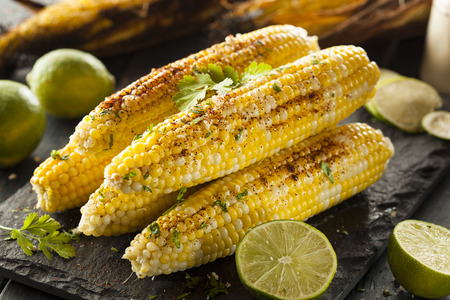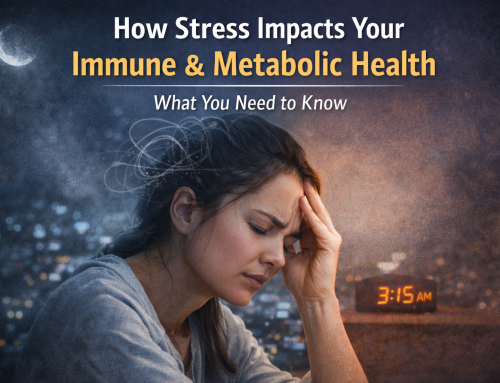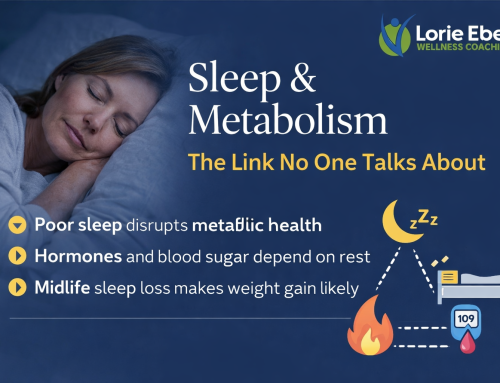Is corn healthy? Is corn good for you? Read on to learn about corn’s nutrition, health benefits and the best ways to cook it.
Corn is delicious, but is it good for you? Dietitians discuss corn’s nutritional value, benefits, side effects and the healthiest way to cook corn.
It’s officially summer and sweet corn season. While corn is eaten year-round, there’s nothing quite like enjoying it fresh off the cob. It’s delicious on its own or in salads, salsas and more.
Corn, born from the cereal grain called maize, originated in Mexico thousands of years ago. It was a staple food for indigenous peoples of the Americas, who introduced modern corn to European colonists, which is how corn spread around the world.
Today, corn is widely eaten and used in food products including cereals, sweeteners and alcohols, per the United States Department of Agriculture. It’s also the most common livestock feed grain and used for biofuel. In short, corn can do it all.
Corn even had its own cultural moment recently thanks to Tariq aka Corn Kid, whose adorable enthusiasm for the “big lump with knobs” went viral on TikTok in 2022.
However, there’s still some confusion about what corn is and its nutritional value. Is it a vegetable or grain? Is it a carbohydrate? Is corn good for you? We spoke to dietitians about corn’s nutrition content, health benefits, risks and the healthiest cooking methods.
What is corn? Is corn a vegetable, fruit or grain?
Technically, corn is all three. Depending on when it is harvested and how it’s used, corn can be considered a fruit, vegetable or a grain.
Scientifically, corn is classified as a fruit because the part of the corn we eat, the kernels, come from the flowering part of the plant, per the Nebraska Corn Board.
Fresh or frozen corn from the cob — which is picked earlier when the kernels are soft and full of liquid — is considered a starchy vegetable by the USDA. Fully mature, dry corn kernels are harvested later and technically a whole grain. These are used for popcorn and ground into cornmeal.
Corn nutrition facts
The type of corn you buy at the grocery store and eat is sweet corn, which is yellow or white. There are also blue, red, purple and black corn varieties. The nutrition content of corn varies based on the type of corn and how it was processed and prepared.
According to the USDA Database, one-half cup of fresh sweet corn, boiled and drained, contains roughly:
• 85 calories
• 3 grams of protein
• 17 grams of carbohydrates
• 1 gram of fat
• 2-3 grams fiber
The serving size of corn is either one medium ear of corn on the cob or one-half cup of cooked kernels (fresh, frozen, or canned), says Natalie Rizzo, registered dietitian and nutrition editor for TODAY.com.
Is corn healthy?
Is corn healthy? Corn can certainly be healthy when eaten in moderation. The starchy vegetable is a good source of vitamins, minerals, fiber and other nutrients. Corn is also naturally gluten-free and low in calories and fat, Frances Largeman-Roth, a registered dietitian-nutritionist, tells TODAY.com.
However, sweet corn sometimes gets a bad rap for being unhealthy or all carbs and sugar — which are myths. “Many people don’t realize that corn has protein and fiber — about three grams or 10% of your daily value in one-half cup,” says Rizzo.
Corn is high in carbohydrates, especially starches — one ear packs about 5 grams of starches per one-half cup. While corn does raise blood sugar levels, it’s a complex carbohydrate, which takes longer to digest, the experts note.
The fiber in corn also helps slow digestion and absorption of carbohydrates, Largeman-Roth adds — which is why it’s considered a low glycemic food. Corn may taste sweet, but it’s relatively low in sugar — one ear only has about five to six grams, per the USDA.
Health benefits of corn
Corn and its nutrients have a number of health benefits. According to experts, corn can help:
• Boost energy
• Support digestion
• Promote heart health
• Protect vision
Corn’s high starch content makes it an excellent choice to fuel the body. “Those carbohydrates give you energy, (especially) for exercise,” says Rizzo.
Additionally, corn is a good source of fiber, both soluble and insoluble. Dietary fiber helps support digestion and regular bowel movements, prevent constipation, and regulate cholesterol levels, TODAY.com previously reported. Corn is a prebiotic food, which feeds good bacteria in the gut for a healthy microbiome.
“In addition to being delicious, corn also provides heart-healthy potassium, folate, magnesium and B vitamins,” says Largeman-Roth.
Corn is rich in thiamin, or vitamin B1, providing about 20% of your daily value per serving. Thiamin is essential for energy metabolism, the growth and development of cells, and nervous system function, per the NIH Office of Dietary Supplements.
Corn is also a good source of vitamin C, which supports immune function, healthy tissue growth and repair, collagen synthesis, iron absorption and more. One serving of corn can provide about 10% of your daily value of vitamin C.
Finally, corn contains antioxidants called lutein and zeaxanthin, which play a large role in vision and maintaining eye health, says Rizzo.
Is corn good for weight loss?
When eaten in moderation as part of a balanced diet, corn can be good for weight loss, the experts note.
“Corn is quite low in calories, while also filling, making it a great option for people who are trying to lose weight,” says Largeman-Roth. The starch, protein and fiber content can help you feel full and regulate hunger, Rizzo notes, and in theory prevent overeating.
“If you’re replacing a processed food in your diet with corn, it can definitely help you reduce calories and lose weight,” says Rizzo.
Are frozen and canned corn healthy?
Whole, fresh corn is the top choice, but frozen and canned corn can also be healthy, the experts note.
“Frozen corn is great — there’s no shucking needed and it’s available all year round,” says Largeman-Roth. Fresh corn is flash-frozen to seal in nutrients. A 2015 study from researchers at the University of California, Davis, comparing vitamin retention in frozen and fresh vegetables showed that the vitamin C content of frozen corn was higher than refrigerated corn.
“Canned corn can also be a great and convenient option,” says Largeman-Roth. Whole kernel corn in water with no salt added is the most nutritious choice. “Avoid the ones that are cream-style,” says Largeman-Roth, adding that these can contain added sugars.
Healthiest way to cook corn
Steaming, boiling or microwaving are the healthiest ways to cook corn, according to the experts. “Grilling corn (either in the husk or shucked) is another healthy option,” says Largeman-Roth.
Corn on its own is low in calories and fat, but the toppings can add up. When seasoning corn, the experts recommend using minimal additives like salt and sugar, and limiting saturated fats.
Traditionally, corn on the cob is enjoyed with butter and salt, which can still be part of a healthy diet but moderation is key, says Largeman-Roth. Opt for grass-fed butter and use a drizzle or no more than one serving (one tablespoon), and limit salt.
Olive oil and Greek yogurt can be used as healthier substitutes for butter or mayonnaise. Spices and herbs, fresh or dried, also add flavor without excess sodium.
“In addition to munching it on the cob, try adding corn kernels to bean, pasta and grain salads or soup,” says Largeman-Roth.
Click here to learn more about is corn healthy.






